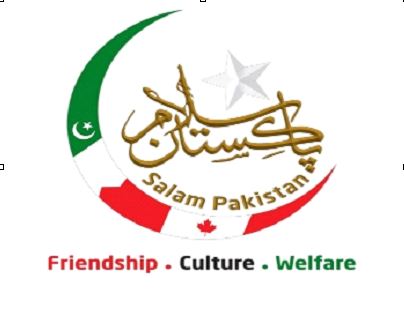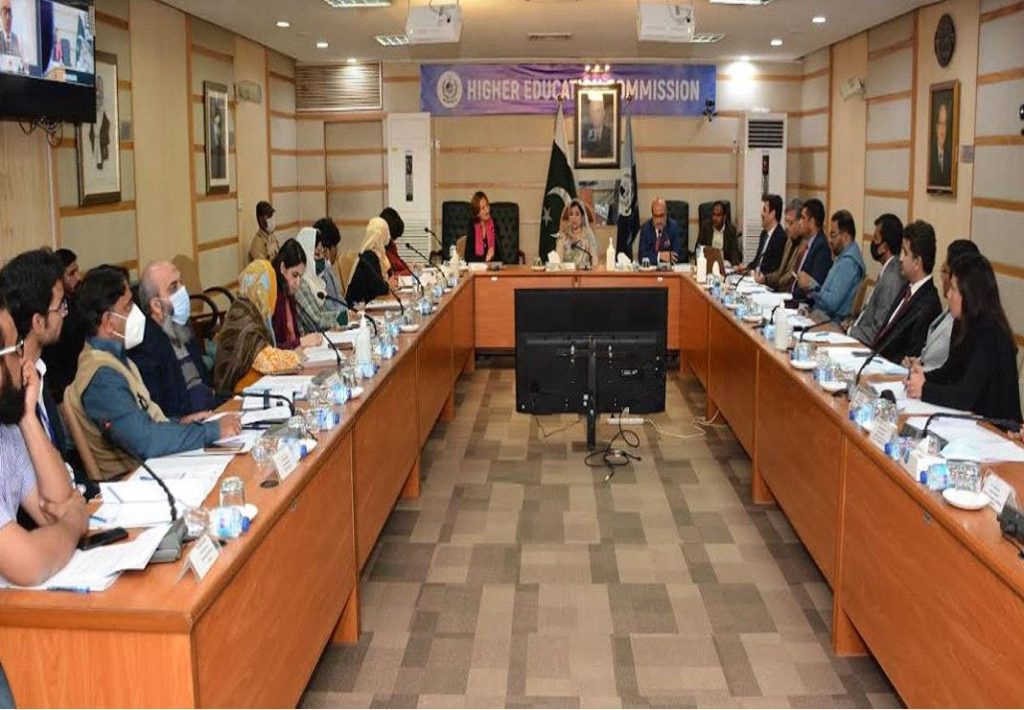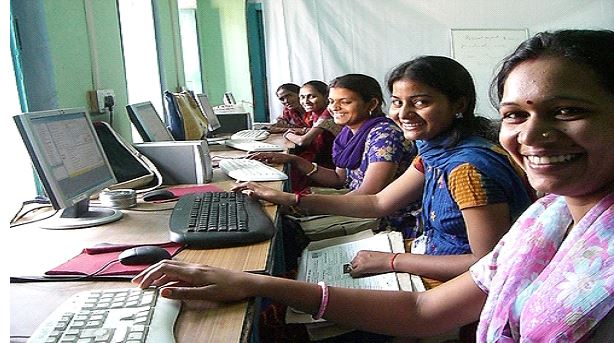Pakistan–Canada Educational Relations: Cultivating Minds, Connecting Nations

(By Nida Shah & Kainat Rajput)
Education stands as the most dynamic and enduring pillar of Pakistan–Canada relations, binding the two nations through a shared commitment to intellectual advancement, innovation, and global progress. Their deepening academic partnership continues to foster opportunities that transcend borders and empower future generations. Over the years, both nations have cultivated a strong educational bridge, driven by a mutual belief that human development and knowledge exchange form the cornerstone of lasting prosperity and diplomacy.
A Foundation of Shared Vision
The educational collaboration between Pakistan and Canada is grounded in mutual respect and a shared aspiration to create inclusive, knowledge-based societies. Canada, recognized globally for its high-quality education and inclusive policies, has consistently opened its doors to talented students and researchers from Pakistan. Meanwhile, Pakistan’s growing emphasis on higher education, research, and global engagement reflects its determination to develop a skilled and competitive youth capable of driving national progress.
Education has become more than an academic pursuit, it is a medium of diplomacy, connecting people, institutions, and ideas. For Canada, supporting education in Pakistan aligns with its global mission to foster social inclusion, gender equality, and sustainable development. For Pakistan, collaboration with Canada represents access to world-class academic resources, cutting-edge research, and an opportunity to enhance its higher education ecosystem.
Strengthening Academic Linkages

In recent years, Pakistan and Canada have achieved notable milestones that reaffirm their commitment to educational cooperation. A landmark moment came on July 26, 2019, when Canada expanded its Student Direct Stream (SDS) program to Pakistan. This initiative, aimed at accelerating visa processing for international students, ensures faster and more transparent procedures for Pakistani applicants seeking admission to Canadian institutions. The inclusion of Pakistan in SDS not only eased academic mobility but also symbolized Canada’s confidence in the intellectual promise and integrity of Pakistani youth.
The results were remarkable. Following the SDS expansion, the number of Pakistani students enrolling in Canadian universities rose significantly, with a marked increase in applications for graduate programs in science, technology, and management. The program strengthened people-to-people ties and set a new benchmark for bilateral educational cooperation.
Earlier, in June 2015, a high-level delegation comprising nineteen Vice Chancellors from Pakistan and officials from the Higher Education Commission (HEC) visited Vancouver and other major Canadian cities. The study tour offered an opportunity to engage with academic leaders, explore university governance models, and establish institutional partnerships. Discussions during the visit focused on curriculum development, research collaboration, and quality assurance in higher education. This initiative strengthened academic linkages and helped shape Pakistan’s ongoing efforts to modernize its higher education system in line with international standards.
Recent Milestones and Research Cooperation
The collaboration continues to grow stronger with each passing year. On September 9, 2025, Canada unveiled the Graduate Research Scholarship 2026, a prestigious funding initiative that offers CAD $40,000 annually for three years to outstanding international PhD candidates, including those from Pakistan. The program, reaffirmed in October 2025, underscores Canada’s commitment to supporting global research excellence and promoting academic diversity.
Pakistani scholars have increasingly become recipients of Canadian research grants and university fellowships, contributing to disciplines ranging from climate science and engineering to healthcare and education policy. Joint projects between the University of Toronto, McGill University, and Lahore University of Management Sciences (LUMS), for instance, are exploring renewable energy solutions and sustainable agriculture — areas critical to Pakistan’s socio-economic development.
In 2025, both nations also participated in the Global Education Dialogue on South–North Research Partnerships, hosted in Ottawa. The conference emphasized the role of collaborative research in addressing climate adaptation, digital transformation, and women’s empowerment through education. Pakistani academics presented innovative projects on green technologies and rural education reform, reinforcing Pakistan’s growing reputation as a hub of youthful innovation and academic ambition.
Empowering Women Through Education

One of the defining features of Pakistan–Canada educational cooperation is its focus on women’s empowerment. Canada has long championed gender equality in education, and its partnerships in Pakistan reflect this commitment. Canadian-funded initiatives, such as the Women’s Scholarship Program and Girls Learn, Women Earn Project, have enabled thousands of young women from underserved communities in Pakistan to pursue higher education and technical training. Through these initiatives, women are not only gaining academic credentials but also developing leadership skills, entrepreneurial capacity, and self-confidence. Graduates of these programs are now working in education, healthcare, and business sectors across Pakistan, driving social change and serving as role models for the next generation.
Building Institutional Bridges
Institutional collaboration remains the cornerstone of this bilateral partnership. Several Canadian universities, including the University of British Columbia, Carleton University, and York University, have signed memoranda of understanding (MoUs) with Pakistani institutions to promote faculty exchange, joint research, and curriculum development. These partnerships have led to the creation of joint degree programs and virtual exchange platforms, enabling students and faculty from both nations to work together on research addressing real-world challenges.
Furthermore, the Pakistan–Canada Education Forum, established in 2023, has become a key platform for dialogue on higher education reform, research innovation, and student welfare. Annual meetings of this forum bring together academic leaders, policymakers, and industry representatives to chart new pathways for collaboration in education technology, sustainability, and cultural exchange.
Challenges and Opportunities
While the achievements are remarkable, both countries recognize the challenges that remain. Pakistani students face high tuition fees and limited scholarship opportunities, while Canadian universities continue to navigate visa backlogs and administrative hurdles in processing international admissions. Additionally, there is a growing need for structured post-graduation employment pathways that allow Pakistani students to gain professional experience in Canada before returning home. To overcome these challenges, both governments are focusing on enhancing financial aid, expanding student exchange programs, and promoting mutual recognition of academic qualifications. Strengthening collaboration in technical and vocational education — particularly in fields like renewable energy, information technology, and healthcare — also presents vast opportunities for future cooperation.
Looking Ahead: Education as Diplomacy
Education today represents far more than academic pursuit; it has become a powerful instrument of diplomacy. The relationship between Pakistan and Canada demonstrates how educational collaboration can shape not only individual futures but also national destinies. By investing in shared learning and research, both nations are cultivating a generation of thinkers, innovators, and leaders who can address global challenges with empathy and intellect.
In an increasingly interconnected world, their partnership embodies the spirit of inclusive globalization where knowledge transcends borders, and mutual respect fuels progress. As more Pakistani students choose Canada as their academic destination, and as more Canadian institutions engage with Pakistan’s education sector, the seeds of a long-term, transformative relationship are being sown.
Conclusion
The journey of Pakistan–Canada educational relations is a testament to the enduring power of collaboration and mutual trust. From the expansion of the Student Direct Stream in 2019 to the launch of the Graduate Research Scholarship 2026, each milestone reflects a shared vision of empowerment through knowledge. Canada’s support for Pakistan’s academic growth and Pakistan’s eager participation in global research endeavours illustrate how education can bridge cultures and build nations. As both countries continue to deepen their academic ties, their partnership stands as a model for how education can serve as the foundation of peace, progress, and prosperity. When nations learn together, they grow together and the relationship between Pakistan and Canada shines as a beacon of that timeless truth.
